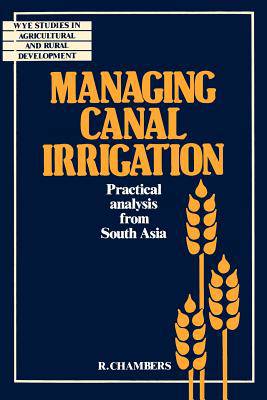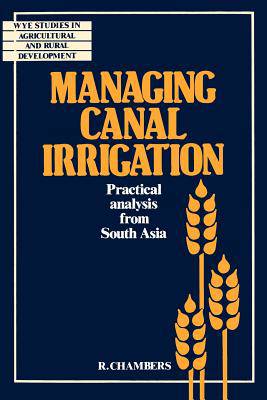
- Afhalen na 1 uur in een winkel met voorraad
- Gratis thuislevering in België vanaf € 30
- Ruim aanbod met 7 miljoen producten
- Afhalen na 1 uur in een winkel met voorraad
- Gratis thuislevering in België vanaf € 30
- Ruim aanbod met 7 miljoen producten
Omschrijving
In this book, Robert Chambers shows that much of this policy and practice is based on misleading research and misdiagnosis. When applied to the complexity and uniqueness of canal irrigation systems, the normal professionalism of civil and agricultural engineers, agronomists, economists, and sociologists, leaves gaps which are keys to better performance. In successive chapters, five such gaps are analysed and presented: main system management, including the scheduling and delivery of water, and communications; canal irrigation at night; management of canal systems jointly by farmers and officials; professional conditions and incentives for irrigation managers; and methods for diagnostic analysis to identify cost-effective actions for improvement.
Managing Canal Irrigation has been written for policy-makers, irrigation managers, consultants, researchers, trainers and teachers. It challenges all concerned with improving the performance and anti-poverty impact of canal irrigation, whether in government departments, aid agencies, consultancy firms, training and research institutes or universities, to re-examine their beliefs, biases and actions. By going beyond the limits of normal professionalism, the book presents a new syllabus for training, a new agenda for research and development, and points to new policies and topractical action to be taken in the field.
Specificaties
Betrokkenen
- Auteur(s):
- Uitgeverij:
Inhoud
- Aantal bladzijden:
- 308
- Taal:
- Engels
- Reeks:
Eigenschappen
- Productcode (EAN):
- 9780521347884
- Verschijningsdatum:
- 28/04/1989
- Uitvoering:
- Paperback
- Formaat:
- Trade paperback (VS)
- Afmetingen:
- 154 mm x 230 mm
- Gewicht:
- 503 g

Alleen bij Standaard Boekhandel
Beoordelingen
We publiceren alleen reviews die voldoen aan de voorwaarden voor reviews. Bekijk onze voorwaarden voor reviews.











